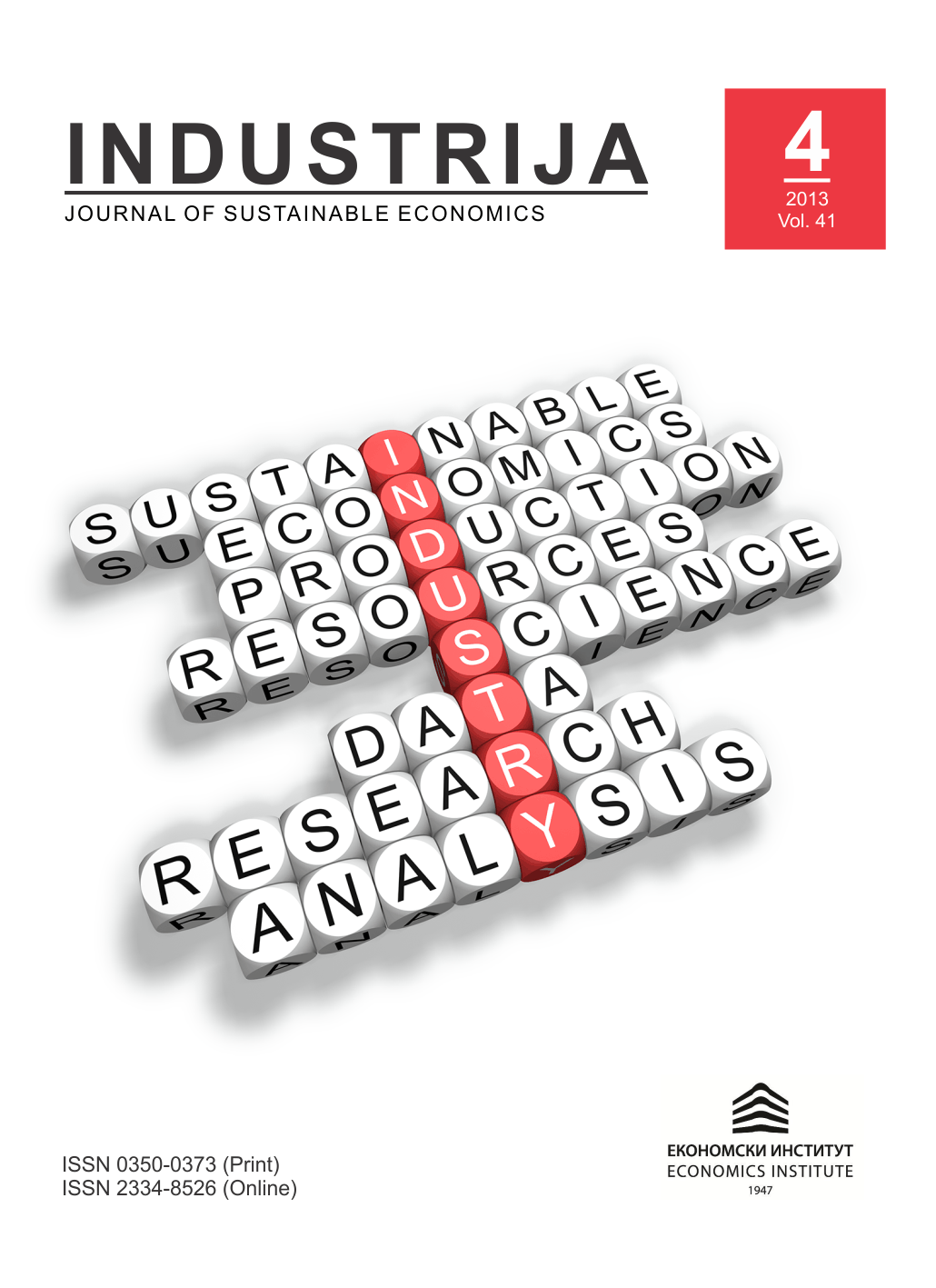Analysis of Life Insurance Premium in Regard to Net Income as an Influencing Factor– the Case of the Republic of Serbia
Sažetak
In current business conditions, insurance market in the Republic of Serbia notes positive but relatively slow growing trend. During the last few years, life insurance market in Serbia has an upward trend, however, it still significantly falls back in comparison to developed European countries. Insufficient development of life insurance sector is in direct relation to insufficient economic development, weak financial market, high unemployment rate and poor implementation of economic reforms. Additionally there is a problem due to the lack of both quality and quantity of education with insufficient basic knowledge of potentials that this type of insurance offers. The aim of this paper is to present the projection of life insurance premium on the basis of linear trend parameters and correlation degree between average net income and the amount of life insurance premium and to emphasize the necessity of intense development of life insurance market.
Reference
Avdalović, A. (2007). Principi osiguranja. Novi Sad, Serbia: FTN izdavaštvo.
Beck, T. & Webb, I., (2003). Economic, Demographic, and Institutional Determinants of Life Insurance Consumption across Countries, The World Bank Economic Review, 17 (1), 51–88. doi:10.1093/wber/lhg011
Biljan-August, M., Pivac, S. & Štambuk. (2007). Upotreba statistike u ekonomiji. Rijeka, Hrvatska: Ekonomski fakultet Sveučilišta u Rijeci.
Burnett, J. & Palmer, B. (1984).Examining Life Insurance Ownership Through Demographic and Psychographic Characteristics.Journal of Risk & Insurance, 51(3), 453-467. Retrived from http://web.ebscohost.com.proxy. kobson.nb.rs:2048/ehost/pdfviewer/pdfviewer?sid=d29ddeeb-7c31-4866-a5d2-a9f68ef66928%40sessionmgr11&vid=4&hid=26
Business Info Group. (2012). Banke i osiguranja u Srbiji 2001-2011. Beograd, Srbija: Autor.
Chi Hung, C. & Chien Chiang, L. (2012). Non-Linearity Between Life Insurance and Economic Development: A Revisited Approach. The Geneva Risk and Insurance Review, 37, 223–257. doi:10.1057/grir.2011.10.
International Monetary Fund. (2012). Word Economic Outlook. Washington, DC., United States of America: International Monetary Fund, Publication Services.
Jeremić, Lj. & Paunović, M. (2011). Komparativna analiza tržišta osiguranja u Evropskoj Uniji, Srbiji i državama u regionu. Singidunum revija, 8(1), 17-26.
Ministarstvo finansija i privrede. (2013). Osnovni indikatori makroekonomskih kretanja Preuzeto sa:http://mfp.gov.rs/UserFiles/File/tabele/2013%20januar/Tabela%201%20Osnovni%20 makroekonomski%20indikatori.pdf
Narodna banka Srbije. (2012). Sektor osiguranja u Srbiji, izveštaj za III kvartal 2012. godine. Beograd, Srbija: Autor
Narodna banka Srbije. (2012). Sektor osiguranja u Srbiji, izveštaj za 2011. godinu. Beograd, Srbija: Autor
Savić, M. (2005). Poslovna statistika, Subotica, Srbija: Autor.
Swiss Re. (2012). Europian Insurance Report 2012, Customers for Life. Zurich, Switzerland: Author.
Swiss Re. (2012). Sigma 03/2012, World Insurance in 2011. Zurich, Switzerland: Author.
Službeni glasnik RS 55/04. (2004). Zakon o osiguranju, Beograd, Srbija: Autor.
Ward, D. & Zurbruegg, R., (2000). Does insurance promote economic growth? Evidence from OECD countries.The Journal of Risk and Insurance, 67(4), 489-506.

